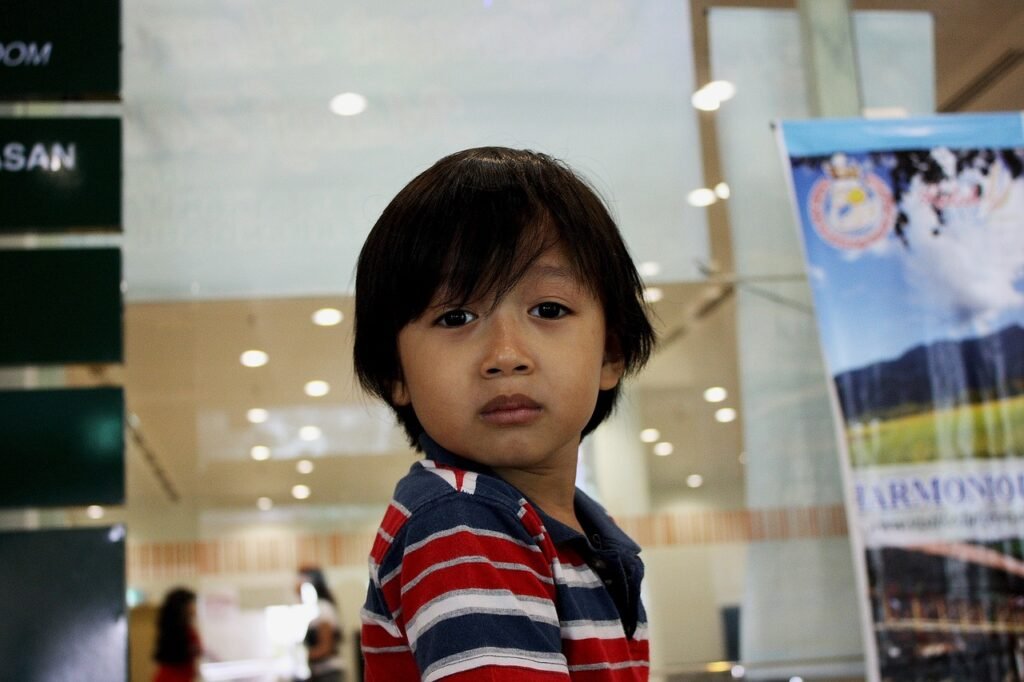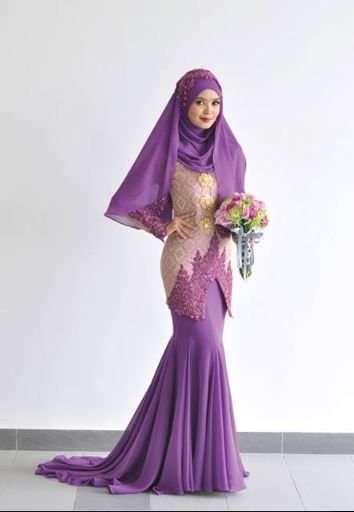Malaysia is a country with a rich cultural heritage and diverse population, and one aspect of this diversity is reflected in the names given to Malaysian boys. Malaysian boy names are often influenced by the country’s history, religion, and geography, resulting in a unique and varied collection of names.

Malaysia has a multicultural society with a mix of Malay, Chinese, Indian, and indigenous groups. As a result, Malaysian boy names often reflect this diversity, with names drawn from different cultures and languages. For example, Malay names are often influenced by Islam, with many names referencing the Quran and Islamic traditions. Chinese names, on the other hand, often have meanings related to nature, animals, or Chinese philosophy.
In addition to cultural influences, Malaysian boy names may also be inspired by the country’s geography and history. For example, names like Amirul (meaning “prince of the world”) and Iskandar (the Malay version of Alexander) reflect the country’s historical ties to ancient empires. Meanwhile, names like Gunung (meaning “mountain”) and Laut (meaning “sea”) are inspired by Malaysia’s stunning natural landscapes.
Popular Malaysian Boy Names

Malaysia is a country with a rich and diverse culture, and this is reflected in the names given to their children. Here are some of the most popular Malaysian boy names:
1. Muhammad
Muhammad is a name that is widely used in Malaysia and throughout the Muslim world. It is derived from the Arabic word “hamid,” which means “praised” or “praiseworthy.” The name Muhammad is often given to boys as a way of honoring the prophet of Islam.
2. Ahmad
Ahmad is another popular name in Malaysia, and it is also of Arabic origin. It means “most commendable” or “most praiseworthy.” The name is often used as an alternative to Muhammad.
3. Amir
Amir is a name that is common in Malaysia and throughout the Middle East. It means “prince” or “ruler,” and it is often given to boys who are seen as leaders or who have a strong personality.
4. Aiden
Aiden is a name that has become popular in Malaysia in recent years. It is of Irish origin and means “fiery one” or “little fire.” The name is often given to boys who are seen as energetic and passionate.
5. Arif
Arif is a name that is common in Malaysia and throughout the Muslim world. It means “knowledgeable” or “wise,” and it is often given to boys who are seen as intelligent and studious.
These are just a few of the many popular Malaysian boy names. Each name has its own unique meaning and history, and they all reflect the rich cultural heritage of Malaysia.
Cultural Significance of Names in Malaysia

Malaysia is a country with a diverse cultural and religious background which is reflected in its naming practices. Names in Malaysia are not just a label, but they hold significant cultural and religious value. The naming process in Malaysia is influenced by various factors such as religion, ethnicity, and family traditions.
Islamic Influence
Islam is the official religion of Malaysia, and it plays a significant role in the naming practices of the country. Many Malay names have Arabic origins and are often given to children to honor Islamic prophets and leaders. For example, the name Muhammad is a popular name in Malaysia, which means “praised one” in Arabic and is the name of the last prophet in Islam. Other popular Islamic names in Malaysia include Ali, Fatimah, Aisha, and Omar.
Ethnic Diversity and Naming Practices
Malaysia is a multicultural country with a diverse ethnic background. Each ethnic group has its own unique naming practices, which reflect their cultural beliefs and traditions. For instance, Chinese Malaysians often use names that reflect their family’s status, such as “Chin” or “Tan.” Indian Malaysians often use names that reflect their religious beliefs, such as “Krishna” or “Shiva.”
In addition, many Malaysians also use honorifics to show respect to their elders and family members. For example, the honorific “Datuk” is used to address a grandfather or an elder, while “Kakak” is used to address an older sister or female family member.
In conclusion, names in Malaysia hold significant cultural and religious value. The naming practices in Malaysia are influenced by various factors, including religion, ethnicity, and family traditions. Understanding the cultural significance of names in Malaysia is essential to appreciate the country’s diverse cultural heritage.
Traditional Malaysian Names

Malaysian names reflect the diverse cultural heritage of the country. Traditional Malay names often have significant meanings that reflect the parents’ hopes and aspirations for their child. Here are some popular traditional Malaysian names:
- Amir – meaning “prince” or “commander”, this name is often given to boys who are expected to be leaders.
- Arif – meaning “knowledgeable” or “wise”, this name is often given to boys who are expected to be scholars or intellectuals.
- Hakim – meaning “judge” or “wise”, this name is often given to boys who are expected to be fair and just.
- Ibrahim – meaning “father of many”, this name is often given to boys who are expected to have many children.
- Iskandar – meaning “defender” or “protector”, this name is often given to boys who are expected to be strong and brave.
- Khalid – meaning “eternal” or “immortal”, this name is often given to boys who are expected to have a long and prosperous life.
- Mohammed – meaning “praised” or “commendable”, this name is often given to boys who are expected to be righteous and respected.
- Nasir – meaning “helper” or “protector”, this name is often given to boys who are expected to be supportive and caring.
- Rahman – meaning “merciful” or “compassionate”, this name is often given to boys who are expected to be kind and generous.
- Zain – meaning “beauty” or “adornment”, this name is often given to boys who are expected to be attractive and charming.
These are just a few examples of traditional Malaysian names. Parents often choose names based on their cultural or religious beliefs, as well as personal preferences.
Modern Trends in Malaysian Boy Names

Malaysian boy names have evolved over time, reflecting the country’s diverse culture and influences from neighboring countries. In recent years, there has been a shift towards modern and unique names that reflect the parents’ individuality and aspirations for their child.
One trend that has emerged is the use of nature-inspired names. Parents are increasingly choosing names like Arfan (meaning “knowledgeable about flowers”), Harith (meaning “ploughman”), and Rayyan (meaning “watered, luxuriant”) for their sons. These names not only reflect the beauty of nature but also convey positive traits like resilience and growth.
Another trend is the use of Arabic names. Malaysia has a significant Muslim population, and Arabic names have become increasingly popular among Muslim parents. Names like Ahmad (meaning “most commendable”), Amir (meaning “prince”), and Zaid (meaning “abundance”) are some of the most common Arabic names used for boys in Malaysia.
In addition to nature-inspired and Arabic names, there has also been a rise in names that reflect global trends and popular culture. Names like Ethan, Aiden, and Liam, which are popular in Western countries, have also gained popularity in Malaysia. Similarly, names inspired by popular culture, such as Harry (from Harry Potter) and Thor (from Marvel comics), have also become more common.
Overall, Malaysian boy names have become more diverse and reflective of the country’s changing landscape. Parents have more options than ever before, and they are choosing names that reflect their values, aspirations, and cultural heritage.
Influence of Celebrities and Royalty on Names

Malaysia is a country with a rich cultural heritage, and its naming traditions reflect this diversity. Many parents in Malaysia choose to name their children after celebrities or members of royalty. This trend is particularly prevalent among the Malay community.
One of the most famous examples of this is the name Tunku, which means “prince” in Malay. It is a popular name for boys, and it is often given in honor of Tunku Abdul Rahman, the first Prime Minister of Malaysia.
Another popular name is Raja, which means “king” in Malay. It is often given in honor of Raja Petra Kamarudin, a prominent Malaysian blogger and political commentator.
In recent years, there has been a growing trend of parents naming their children after international celebrities. For example, the name Cristiano has become popular after the famous footballer Cristiano Ronaldo. Similarly, the name Ariana has become popular after the American pop singer Ariana Grande.
In conclusion, the influence of celebrities and royalty on Malaysian boy names is significant. It reflects the diverse cultural heritage of Malaysia and the admiration that many Malaysians have for famous figures.
Regional Variations in Naming

Malaysia is a culturally diverse country, and this is reflected in the naming traditions of its various ethnic groups. Malaysian boy names can vary significantly depending on the region and the culture. Here are some examples of regional variations in naming:
Malay Names
Malay names are often derived from Arabic, as Islam is the predominant religion in Malaysia. Malay names typically have a deep meaning and are chosen based on their significance. For example, the name “Ahmad” means “most commendable” or “most praiseworthy,” while “Muhammad” means “praised” or “praiseworthy.”
Chinese Names
Chinese names in Malaysia often follow the traditional Chinese naming conventions, which involve choosing characters that have a positive meaning. For example, the name “Wei” means “greatness,” while “Jian” means “healthy” or “strong.” Chinese names may also be influenced by the dialect spoken in their family or region.
Indian Names
Indian names in Malaysia are often derived from Sanskrit, Tamil, or other regional languages. Indian names often have a religious or spiritual significance and are chosen based on their meaning. For example, the name “Arjun” means “bright” or “shining,” while “Raj” means “king” or “ruler.”
Indigenous Names
Indigenous names in Malaysia vary greatly depending on the tribe or ethnic group. Many indigenous names are derived from nature, such as “Sungai” (river) or “Bukit” (hill). Other names may reflect the tribe’s history or culture, such as “Orang Asli” (original people) or “Dayak” (land people).
In conclusion, Malaysian boy names can vary greatly depending on the region and culture. Whether it’s a Malay, Chinese, Indian, or indigenous name, each name has its own unique meaning and significance.
Naming Laws and Regulations in Malaysia

Malaysia has strict laws and regulations when it comes to naming children. These laws are in place to ensure that the names chosen for children are appropriate and do not cause any embarrassment or ridicule to the child in the future.
The naming laws in Malaysia are governed by the National Registration Department (NRD). According to the NRD, names must not be obscene, vulgar, or offensive in any way. They must also not be too long or difficult to pronounce.
Parents are required to register their child’s name within 14 days of birth. If the name chosen by the parents does not comply with the regulations set by the NRD, they will be asked to choose a new name.
In addition to the regulations set by the NRD, there are also cultural and religious considerations when it comes to naming children in Malaysia. For example, Muslim children are often given Arabic names, while Chinese children are given names based on the Chinese language.
It is important for parents to choose a name that is not only appropriate but also meaningful and significant to their culture and beliefs. By following the naming laws and regulations in Malaysia, parents can ensure that their child’s name is a source of pride and identity for them in the future.
Frequently Asked Questions

What are some unique names for Malaysian boys?
Malaysia has a rich cultural heritage that is reflected in the names given to its children. Some unique names for Malaysian boys include Aqil, which means “wise” or “intelligent,” and Eshan, which means “goodness” or “virtue.” Other unique names include Faris, which means “knight” or “horseman,” and Irfan, which means “knowledgeable” or “wise.”
Can you list Malaysian boy names along with their meanings?
Certainly! Here are a few examples:
- Amir: “prince” or “commander”
- Arif: “knowledgeable” or “wise”
- Faisal: “decisive” or “determined”
- Hafiz: “guardian” or “protector”
- Imran: “prosperity” or “long-lived”
- Iskandar: “defender of mankind”
- Khalid: “eternal” or “immortal”
- Muhammad: “praised” or “praiseworthy”
- Syed: “noble” or “exalted”
How do Malaysian male names and surnames typically pair together?
In Malaysia, it is common for a person’s given name to be followed by their father’s name as a surname. For example, if a man’s name is Ahmad bin Ismail, “Ahmad” is his given name and “bin Ismail” indicates that his father’s name is Ismail. However, some families may choose to use a traditional Malay surname, such as Abdullah or Hassan.
What are some modern names for Malaysian boys?
Malaysia has a vibrant and diverse culture, and this is reflected in the names given to its children. Some modern names for Malaysian boys include Aiden, Ethan, and Liam, which are popular around the world. Other modern names include Arman, Danish, and Zayn, which are gaining popularity in Malaysia.
What are common traditional Malay names for boys?
Traditional Malay names often reflect the values and beliefs of the culture. Some common traditional Malay names for boys include Abdul, Ahmad, and Ali, which are derived from Arabic. Other traditional Malay names include Azman, Baharuddin, and Mohd, which are unique to Malaysia.
Are there any Malaysian boy names that have origins in Arabic?
Yes, many Malaysian boy names have origins in Arabic. This is due to the influence of Islam in Malaysia, which has been present since the 14th century. Some examples of Malaysian boy names with Arabic origins include Abdullah, Ahmad, and Amir.



